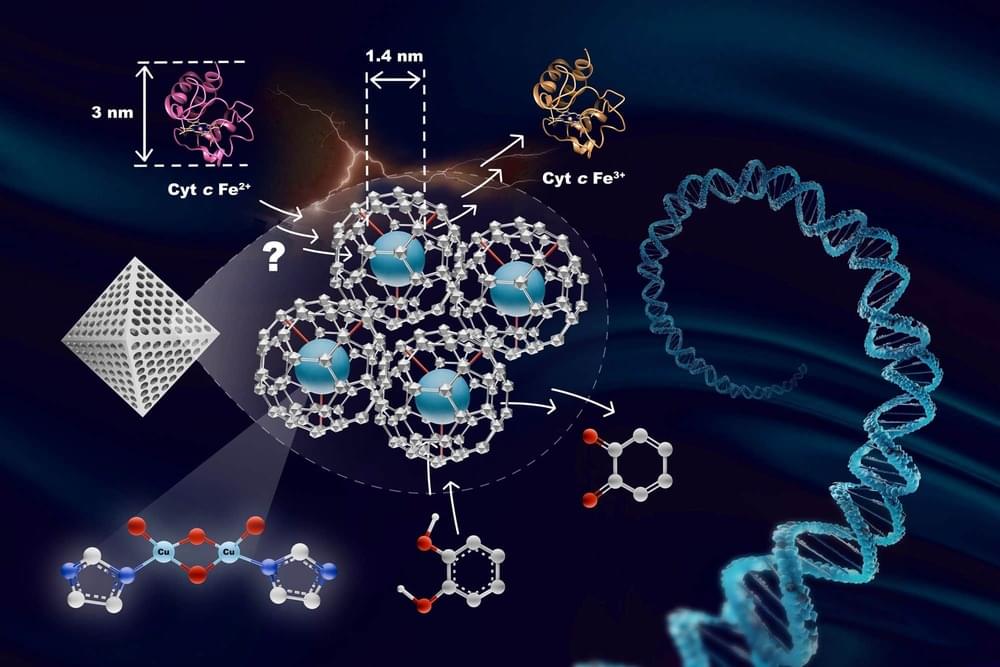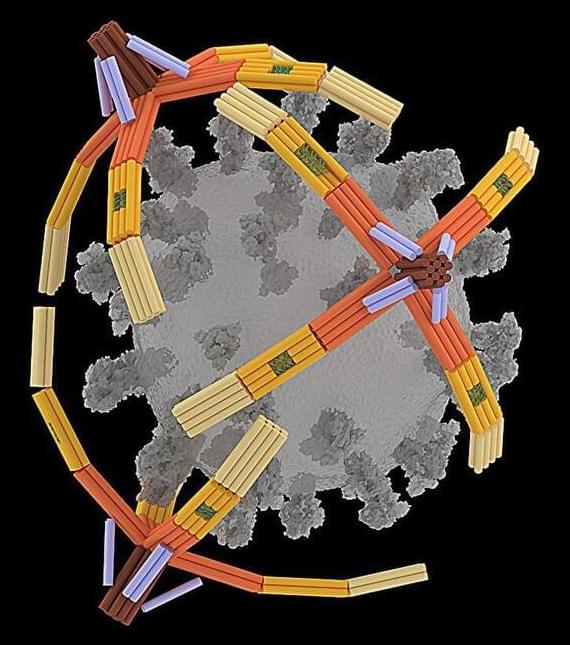The 300-acre circle in the middle of the desert is enigmatic: It is producing 500,000 MW. It is a solar energy and melts salt to produce electricity.



Bill Faloon discusses advancements in age reversal therapies and their transition from research to clinical application, emphasizing the potential for delaying and reversing biological aging. He highlights advancements in age reversal, discussing therapies like young plasma, gene editing, yamanaka factors and exosome treatments, emphasizing their potential to reverse aging, improve health, and extend lifespan.
Credits to : Age Reversal Network https://age-reversal.net/
Please note that the links below are affiliate links, so we receive a small commission when you purchase a product through the links. Thank you for your support!
=*=*=*=*=*=*=*=*=*=*=*=*=*=*=*=*=*=*=*=*=*=*=*=*=*=*=*=*=*=*=*=*=*=
🔖Stem Cells Enhancers : STEMREGEN 15% OFF CODE: REVERSE : https://stemregen.co/reverse.
☑ProHealth, DoNotAge, Renue☑ All Products Discount Coupon CODE: REVERSE
🌏ProHealth Longevity 15% OFF All Products \& Upto 45% Subscription https://prohealth.pxf.io/REVERSEAGING
Calcium AKG 500mg Caps https://prohealth.pxf.io/CaAKG
Full Spectrum Apigenin https://prohealth.pxf.io/apigenin.
Longevity Collagen https://prohealth.pxf.io/LongevityCol…
Berberine Pro 600 mg Caps https://prohealth.pxf.io/Berberine.
Astaxanthin 12mg https://prohealth.pxf.io/astaxanthin.
https://donotage.org/products?affilia…
Ca-AKG https://tinyurl.com/2azxfx83
Pure Spermidine http://tinyurl.com/yc2xbp65 Pure Hyaluronic Acid http://tinyurl.com/3kt8jmxj.
🔶 Nuchido https://www.nuchido.com/REVERSEAGING FIRST ORDER 20% OFF code : REVERSEAGING20.
Integrated Information Theory (IIT) offers an explanation for the nature and source of consciousness. Initially proposed by Giulio Tononi in 2004, it claims that consciousness is identical to a certain kind of information, the realization of which requires physical, not merely functional, integration, and which can be measured mathematically according to the phi metric.
The theory attempts a balance between two different sets of convictions. On the one hand, it strives to preserve the Cartesian intuitions that experience is immediate, direct, and unified. This, according to IIT’s proponents and its methodology, rules out accounts of consciousness such as functionalism that explain experience as a system operating in a certain way, as well as ruling out any eliminativist theories that deny the existence of consciousness. On the other hand, IIT takes neuroscientific descriptions of the brain as a starting point for understanding what must be true of a physical system in order for it to be conscious. (Most of IIT’s developers and main proponents are neuroscientists.) IIT’s methodology involves characterizing the fundamentally subjective nature of consciousness and positing the physical attributes necessary for a system to realize it.
In short, according to IIT, consciousness requires a grouping of elements within a system that have physical cause-effect power upon one another. This in turn implies that only reentrant architecture consisting of feedback loops, whether neural or computational, will realize consciousness. Such groupings make a difference to themselves, not just to outside observers. This constitutes integrated information. Of the various groupings within a system that possess such causal power, one will do so maximally. This local maximum of integrated information is identical to consciousness.
The Quickest Route To Healthy
Linda Jiang is Head of Strategy and Government Partnerships, Healthcare, at Lyft (https://www.lyft.com/healthcare), where she’s responsible for accelerating the growth of the business, driving public sector strategy, and partnering with policymakers and regulators to bring access to the rideshare service to millions of people who need it for healthcare access.
Previously, Linda was an early growth operator at healthcare startups, leading strategy for Modern Fertility and consumer marketing for Color Genomics.
Linda began her career as a management consultant at PwC, with clients including academic medical centers, top integrated healthcare systems, medical device companies, and big box retailers, and also had a role in corporate strategy at Twitter.
She holds a Master of Public Health (MPH) and a Bachelor of Science, Neuroscience and Behavioral Biology from Emory University.
Join us on Patreon! https://www.patreon.com/MichaelLustgartenPhD
Discount Links/Affiliates:
Blood testing (where I get my labs): https://www.ultalabtests.com/partners/michaellustgarten.
At-Home Metabolomics: https://www.iollo.com?ref=michael-lustgarten.
Use Code: CONQUERAGING At Checkout.
Epigenetic, Telomere Testing: https://trudiagnostic.com/?irclickid=U-s3Ii2r7xyIU-LSYLyQdQ6…M0&irgwc=1
Use Code: CONQUERAGING
NAD+ Quantification: https://www.jinfiniti.com/intracellular-nad-test/
Use Code: ConquerAging At Checkout.
Oral Microbiome: https://www.bristlehealth.com/?ref=michaellustgarten.
Share your videos with friends, family, and the world.

Researchers from CSIR-Central Leather Research Institute (CLRI), supported by INSPIRE Faculty and WISE Kiran Fellowships, explored the chemistry between proteins and nanozymes to advance artificial enzymes. Their work focuses on using manganese-based oxidase nanozyme (MnN) to crosslink collagen, a key structural protein, aiming to develop biomaterials for future medicinal and biomedical applications.

A tiny, four-fingered “hand” folded from a single piece of DNA can pick up the virus that causes COVID-19 for highly sensitive rapid detection and can even block viral particles from entering cells to infect them, University of Illinois Urbana-Champaign researchers report. Dubbed the NanoGripper, the nanorobotic hand also could be programmed to interact with other viruses or to recognize cell surface markers for targeted drug delivery, such as for cancer treatment.
Led by Xing Wang, a professor of bioengineering and of chemistry at the U. of I., the researchers describe their advance in the journal Science Robotics.
Inspired by the gripping power of the human hand and bird claws, the researchers designed the NanoGripper with four bendable fingers and a palm, all in one nanostructure folded from a single piece of DNA. Each finger has three joints, like a human finger, and the angle and degree of bending are determined by the design on the DNA scaffold.

Researchers at the University of Sydney Nano Institute have made a significant advance in the field of molecular robotics by developing custom-designed and programmable nanostructures using DNA origami.
This innovative approach has potential across a range of applications, from targeted drug delivery systems to responsive materials and energy-efficient optical signal processing. The method uses “DNA origami,” so-called as it uses the natural folding power of DNA, the building blocks of human life, to create new and useful biological structures.
As a proof-of-concept, the researchers made more than 50 nanoscale objects, including a “nano-dinosaur,” a “dancing robot” and a mini-Australia that is 150 nanometers wide, a thousand times narrower than a human hair.